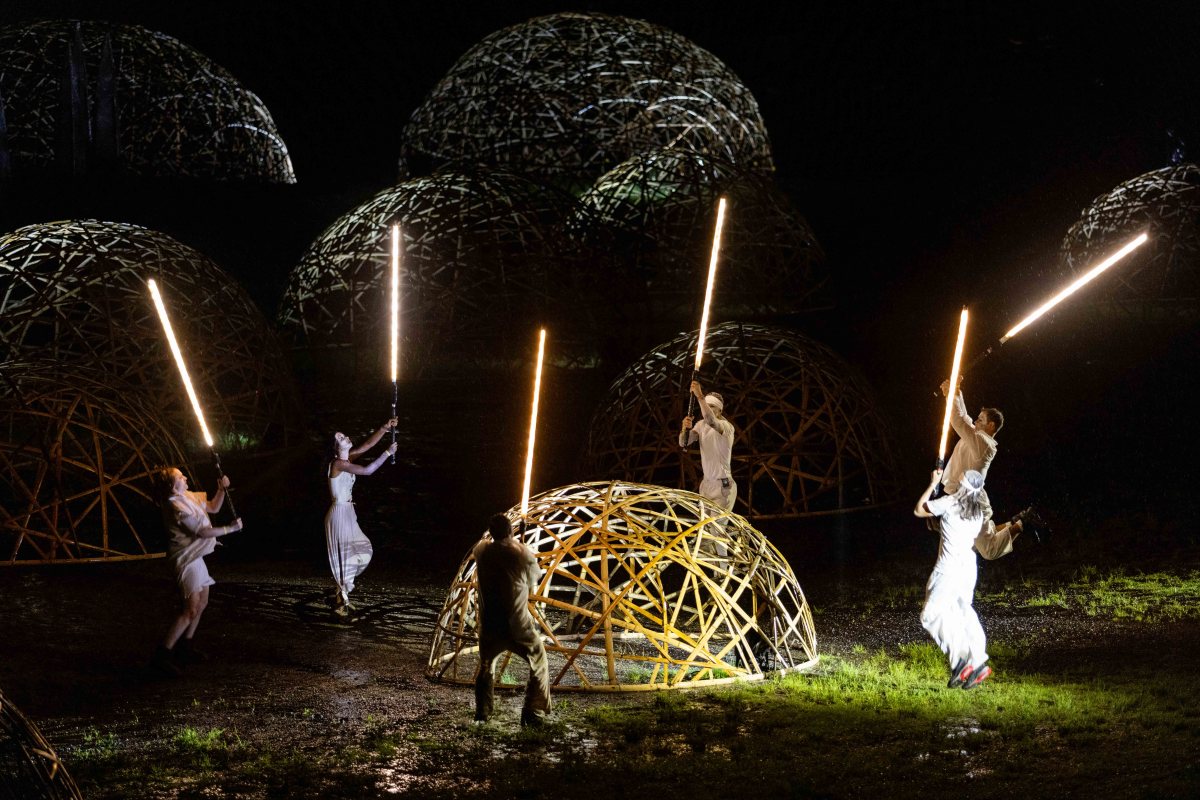Woodford Folk Festival is distinct in its event-wide emphasis on ritual, ceremony and lore. Each year, festival-goers attend an Opening Ceremony incorporating a Welcome to Country by the Jinibara Traditional Custodians, participate in a three-minute candlelit silence on New Year’s Eve and then cluster upon a hilltop for a dawn ceremony as the sun emerges on New Year’s Day.
Historically, the Festival has culminated on New Year’s Day with a flagship event after sunset called the Fire Event, which is the largest annual outdoor theatre project in Australia. From 2013 until recently it was devised by Closing Ceremony Artistic Director, Alex Podger, and featured large-scale narrative spectacles that sparked awe with puppets, performers and props filling every inch of the amphitheatre. Incorporating the creative use of fire throughout, the event typically culminated in the ceremonial burning of a tall effigy, complete with fireworks and pyrotechnics, to start the new year with a powerful catharsis.





